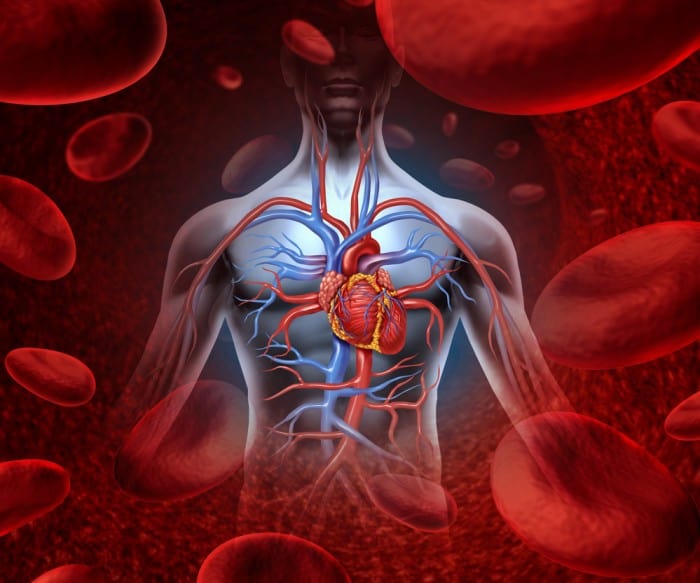What Are the Long-Term Side Effects of Interferons for Hepatitis C?


Hepatitis C is a viral infection that is spread by contaminated blood. It causes liver inflammation and can sometimes lead to severe liver damage. (5)
Up until recently, interferons were the primary choice of treatment for hepatitis C. But after recent developments, the medical community has started to use direct-acting antivirals (DAAs) as the preferred method to fight the virus. This is due to DAAs having less side effects on the patient and, more importantly, it has proven to be more effective.
Despite DAAs being the new preferred type of treatment, those who have been treated with interferons in the past may want to read up on the long term side effects to see how they may have been affected.
What Are Interferons?
Interferons are a type of protein that naturally occur in your body. They work by communicating to the immune system that unwanted germs and cells are in your body. Killer immune cells are then triggered to fight the sickness. Interferons got their name from “interfering” with illnesses as they keep them from spreading in the body. (2)
The 3 primary types of interferons are:
- Interferon-alpha (interferon-alfa): treats viral infections like hepatitis C
- Interferon-beta: treats different types of multiple sclerosis
- Interferon-gamma: treats chronic granulomatous disease and malignant osteopetrosis
Interferon treatment consists of synthetic versions of the proteins that are normally created by the body but instead created in a lab. They are then administered via a shot either into tissue or a vein. The interferons then work with the immune system to fight the virus and keep it from spreading. (2)
Long-Term Side Effects of Interferons
Interferon treatment for hepatitis C is considerably long – about 24 to 48 weeks – which can lead to a number of long term side effects. Over time these side effects can develop or become worse.
Usually interferon treatment is combined with ribavirin which will help fight hepatitis C but will also raise the risk of possible side effects. This article will address these various types of effects. (1)(3)
Common Side Effects of Interferons
The most common long term side-effects are usually not too severe.
They include: (1)
- swelling at injection site
- flu-like conditions, including headaches, exhaustion, and feebleness
- feeling cold
- fevers
- insomnia
- upset stomach
- vomiting
- diarrhea
- irritability and mood swings
- muscle pain
- low white blood cells counts
- loss of appetite
- itchiness
If you are experiencing any of these symptoms and think they may be due to interferon treatment, you should consult with a physician. They will be able to diagnose if this is due to the treatments or something unrelated.
More Severe Side Effects of Interferons
Then there are some more severe side effects that the FDA makes note of directly on the box for interferon treatment, including autoimmune disease, mental disorders, increased infections, and strokes. (1)
AUTOIMMUNE DISEASE – When interferons are introduced to your body, they can increase production of certain antibodies to fight harmful bodily invaders. Sometimes antibodies may accidentally fight healthy cells when confusing them for harmful substances.
This could lead to the following disorders: psoriasis, rheumatoid arthritis, and lupus. (6)(1)
Symptoms for autoimmune disorders include: (1)
- Drastic changes in energy levels
- Constantly feeling tired
- Fever
- Rashes
- Increased or decreased amounts of urination
- Water retention, leading to bloating and puffiness
- Swollen, aching joints
MENTAL DISORDERS – Treatment from interferons can lead to mood swings and mental disorders including severe depression. If you already suffer from mood disorders, interferons can worsen the condition. (1)
Symptoms include:
- Suicidal thoughts
- Acts of aggression
- Hallucinating things that may not actually be there
- Mania – unusually overexcited or restless
INCREASED INFECTIONS – When undergoing interferon treatment, white blood cells – which usually fight infections in your immune system – may be affected and not able to work the way they usually do. This could lead to an increased amount of infections. (1)
Interferon treatment can also reduce cell growth, which could lead to a lower white blood cell count. When your body has less white blood cells, it is harder for your body to fight off infections, making them more frequent. Those who already have infections may find their infections becoming worse.
Symptoms indicative of an infection include:
- Flu-like symptoms
- Fevers and/or chills
- Sore throat
- Burning sensation while urinating
- Aching body
- Visible changes to skin including rashes, bruises, or flaking
STROKES – Interferon treatment can cause your blood pressure or heart rate to increase, both of which can increase the possibility of suffering a stroke. (1)
There are two types of stroke that can come from interferon treatment: (7)
- Ischemic – a blood clot lets less blood get to the brain
- Hemorrhagic – a blood vessel in the brain bursts or leaks, leading to damaged tissue
If you have undergone interferon treatment and are in fear of suffering a stroke, signs to look out for include:
- Difficulty speaking by either slurring words or not being able to talk
- Headaches
- Blurry vision or seeing double
- Feeling weak
- Easily confused
If you think you are suffering a stroke, call 911 immediately.
Blood Cell Related Side Effects

Interferon treatment can lead to a reduced blood cell count; this can cause a variety of maladies due to less white blood cells, red blood cells, or platelets. This is because interferons make it harder for your bone marrow to produce more blood cells. Once treatment is complete, blood cell production should go back to normal. (1)
Below are some blood cell related conditions.
Anemia – A reduced number of red blood cells will lead to less oxygen getting to bodily tissue. It can lead to the following symptoms: (4)
- Feeling tired or weak
- Pale skin
- Loss of breath
- Irregular heartbeat
Bleeding Issues – With less platelets, it will become harder for blood to clot.
Symptoms include: (1)
- Bruising easily
- Heavily bleeding from cuts
- Frequent bloody gums or nose
- Tiny spots on your skin
Thyroid Issues – Interferon treatment can harm the thyroid gland, which can cause your bodily cells to not function properly.
Symptoms include: (1)
- Changes in energy levels
- Increased/decreased weight
- Sweating profusely
- Hair loss
- Feeling too hot or too cold
- Sense of anxiety or nervousness
Vision Issues – Interferon treatment can cause less blood to flow to your eyes, leading to difficulty seeing.
Symptoms include: (1)
- Blurriness
- Vision is less sharp
- Spots in field of vision
Seeing a Doctor
If you find that you are experiencing any of the symptoms mentioned in this article and fear they have to do with past or current interferon treatment, you should consult with your physician to see if you can make changes to your treatment to fix these issues.
Realistically, now that DAAs are more prominent, there is little reason to be on an interferon treatment. DAAs have been found to have a better cure rate with less side effects while also being a shorter treatment period.
1. https://www.healthline.com/health/hepatitis-c/interferons-long-term-effects, Interferons for Hepatitis C: Understanding the Long-Term Side Effects, By Daniel Murell MD
2. https://www.webmd.com/drug-medication/interferons-guide#1, Your Guide To Interferons, By WebMD
3. https://www.healthline.com/health/ribavirin-oral-tablet, Ribavirin, Oral Tablet, By University of Illinois-Chicago, Drug Information Group
4. https://www.healthline.com/symptom/anemia , What Causes Anemia, By Deborah Weatherspoon
5. https://www.healthline.com/health/hepatitis-c , Everything You Want To Know About Hepatitis C, By Elaine K. Luo MD
6. https://www.healthline.com/health/autoimmune-disorders, Autoimmune Diseases: Types, Symptoms, Causes and More, By Daniel Murell MD
7. https://www.healthline.com/health/stroke-types , What Are The Different Types of Stroke?, Seunggu Han, MD







